What Does the Thyroid Do old?
Answers to All Your Thyroid Questions
Did you know that every cell in your body is affected by thyroid hormones? Optimal thyroid health helps you feel energetic and motivated, sleep well, keep your hormones balanced, and even digest your food. Let’s explore how the thyroid gland works, and why keeping it healthy is important.
Thyroid Function 101
The thyroid gland is one of your main endocrine organs, and organizes many body functions. Let’s explore where it’s located and what it does.
Where Is the Thyroid Gland Located?
Your thyroid gland is a small, butterfly-shaped gland located at the front of your neck near your adam’s apple.

What Does the Thyroid Gland Do?
Your thyroid gland is small but mighty. Weighing less than an ounce, your thyroid gland is part of your endocrine system. It produces hormones and releases them into the bloodstream. These thyroid hormones regulate many of your body’s functions, including:
- Energy production
- Digestive function
- Heart and muscle function
- Body weight
- Body temperature
- Fertility
- Brain and nervous system function
Since so many of your body’s functions depend on your thyroid gland, poor thyroid health can lead to a litany of troubling symptoms.
Thyroid Diseases and Disorders
There are many thyroid diseases and disorders, but the most common is hypothyroidism. Let’s explore what can go wrong with your thyroid gland and what it means for you.
Hypothyroid or Hyperthyroid? What’s the Difference?
Most thyroid problems are the result of an underactive or overactive thyroid gland. The medical terms are hypothyroid and hyperthyroid:
- Hypothyroid: An underactive thyroid gland produces too little thyroid hormone and slows down the body’s metabolism.
- Hyperthyroid: An overactive thyroid gland produces too much thyroid hormone and speeds up the body’s metabolism.
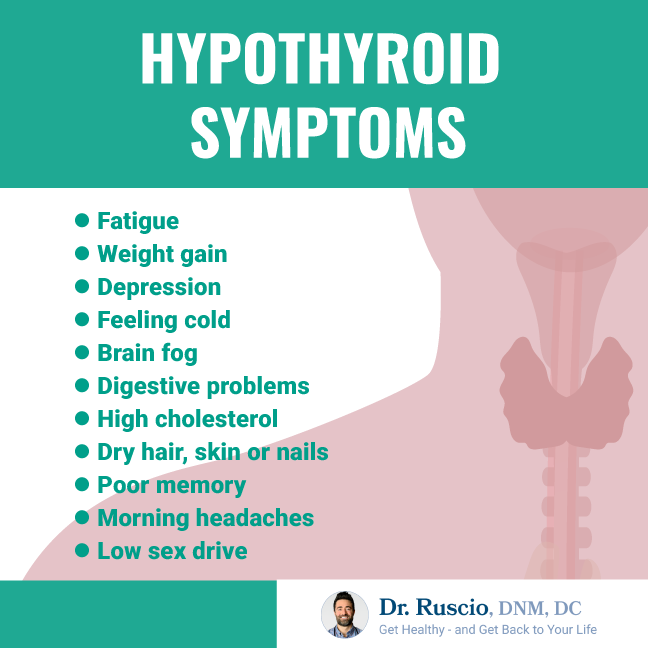

What Causes Thyroiditis?
Thyroiditis is an inflammation of the thyroid gland which can interrupt thyroid hormone production. There are a number of different causes of thyroid inflammation.
Hashimoto’s thyroiditis is an autoimmune disorder and is the most common cause of hypothyroidism and thyroiditis. [1] With Hashimoto’s thyroiditis (or Hashimoto’s disease), the immune system mistakenly attacks thyroid tissue, causing chronic inflammation and damaging thyroid cells. Over time, the thyroid gland becomes less able to produce the thyroid hormones that your body needs for metabolism and healthy function, leading to hypothyroidism.
Autoimmune thyroiditis is ten times more common in women than men. [2]
Although much less common, there are various other forms of thyroiditis. Many of these are transient conditions, caused by viral infections, drug reactions, childbirth, and other disruptions to the body’s normal equilibrium.
Learn more about thyroiditis causes, tests, and treatments: What Causes Thyroiditis?
What Does Pain in the Thyroid Mean?
If your thyroid area hurts, this can be an indicator of both serious and benign thyroid problems. The irony of most thyroid conditions is that they don’t cause pain, so when should you worry?
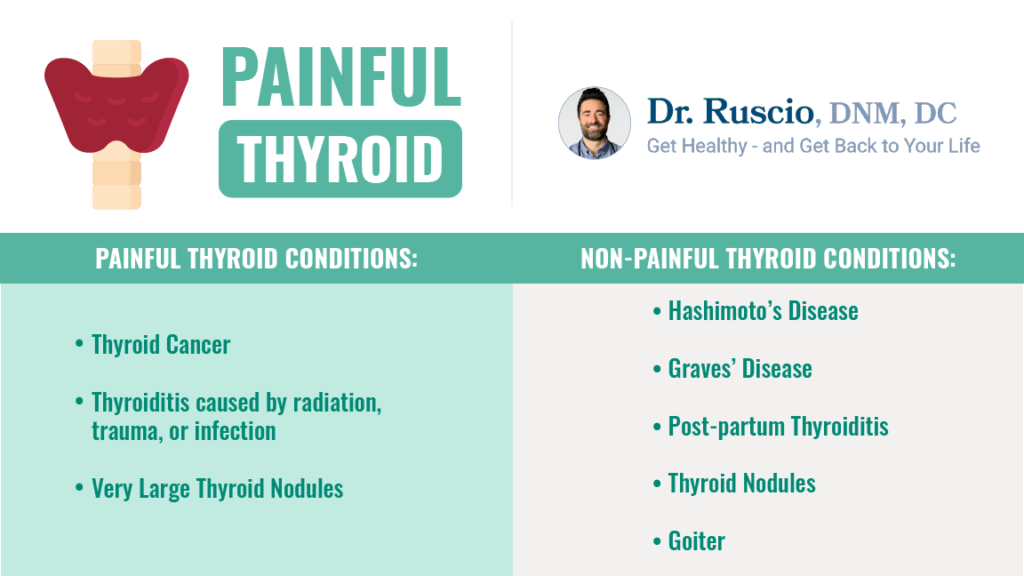
Painful Thyroid Conditions:
Thyroid cancer is perhaps the most serious thyroid problem that causes thyroid pain. Thyroiditis, by definition an inflamed thyroid gland, is much more common. Painful thyroiditis is usually caused by radiation, trauma, or infection.
And though most thyroid nodules don’t cause pain, they do occasionally cause discomfort if they’re very large.
Non-Painful Thyroid Conditions:
The majority of thyroid disorders don’t cause any pain at all. [3] Instead, you would more likely notice the symptoms of hyperthyroidism, such as weight loss, fluctuating heart rate or palpitations, or blood pressure changes, or symptoms of hypothyroidism, such as fatigue, dry skin, weight gain, hair loss, or muscle weakness. These symptoms may indicate:
- Goiter
- Hashimoto’s thyroiditis
- Graves’ Disease (hyperthyroidism)
- Postpartum thyroiditis
- Thyroid nodules
Pain in the thyroid area, or any concern about your thyroid health, should be evaluated by a health practitioner.
For more details, see What Does Pain in Thyroid Mean?
When Should I Worry About My Thyroid Nodule?
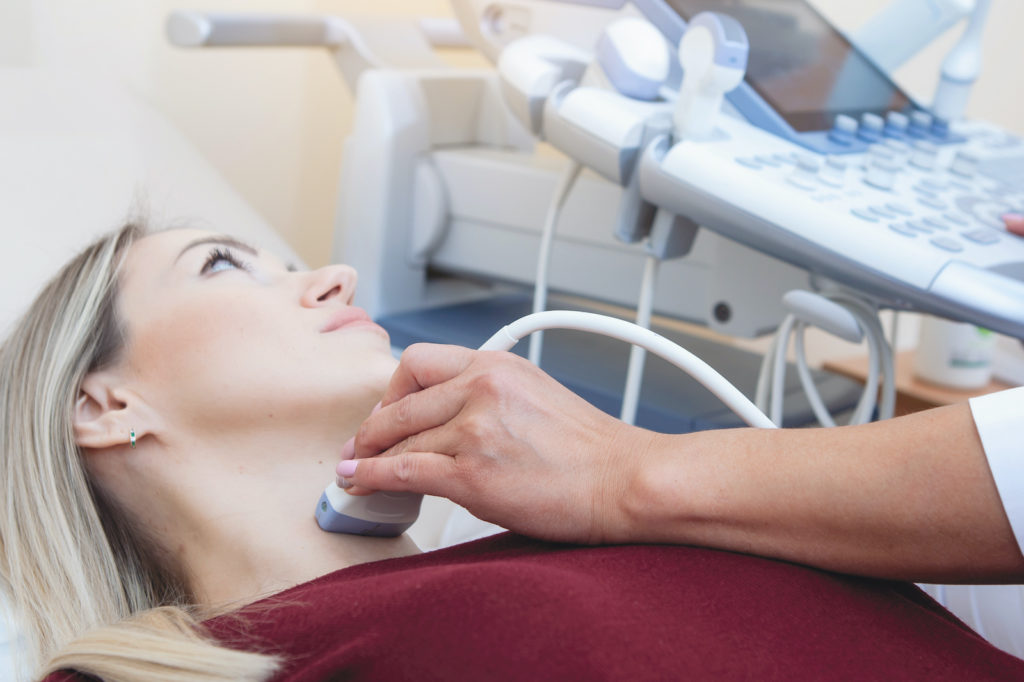
If you’ve been diagnosed with a thyroid nodule, it’s normal to feel anxious. But in most cases, there’s little to worry about. The majority of thyroid nodules are benign, don’t cause symptoms, and don’t require surgery. In fact, you may be able to resolve your thyroid nodules with simple treatment and lifestyle changes.
There are three main reasons to pay closer attention to a thyroid nodule:
- You have a thyroid nodule that is larger than 1 cm or is growing.
- Your thyroid nodule is painful, or is pressing on your voice box or windpipe.
- You have signs or symptoms of hyperthyroidism or hypothyroidism.
If your thyroid nodule is benign, there are two main natural treatment options to improve your thyroid nodules.
- Improve your gut health.
- Optimize your iodine levels.
For more information, see: Thyroid Nodules: When to Worry?
What Causes Thyroid Nodules To Grow?
If you have a thyroid nodule (lump) that continues to increase in size, it’s a sign that you have an active problem affecting your thyroid health. And while most thyroid nodules are benign and don’t cause symptoms, the underlying process could lead to permanent damage of your thyroid gland.
There are a number of possible causes of a growing thyroid nodule:
- Autoimmune disease: A thyroid nodule may be a sign that you have an autoimmune thyroid disease.
- Too much or too little iodine in your diet: Your thyroid gland needs the right amount of iodine to function. A deficiency or oversupply of iodine can cause goiter (swollen thyroid) and thyroid nodules.
- Thyroid Cancer: Although not common, a thyroid nodule that is hard, fixed, or painful may be a sign of thyroid cancer. Most thyroid cancers are slow growing.
- Thyroid Cyst: A thyroid cyst is filled with fluid and completely benign.
If your thyroid nodule is growing actively, it’s important to determine and address the reason for this problem.
For more information, see: What Causes Thyroid Nodules to Grow?
Thyroid Hormone Testing, Antibodies and Medication
There is a lot of debate and confusion about what the ideal level of thyroid markers should be, and what should be done about thyroid antibodies. Here’s what you need to know about thyroid testing, antibodies, and medication.
What Are Optimal Thyroid Hormone Levels?
If you’ve had your thyroid hormone levels tested, you want to know if your thyroid hormone levels are optimal. But what are optimal thyroid levels?
Despite what many practitioners would have you believe, assessing thyroid hormone levels based on blood tests is straightforward. Here are some key points:
- TSH (thyroid stimulating hormone) and free T4 (thyroxine) are all that’s needed for diagnosing hypothyroidism and hyperthyroidism.
- Free T3 (triiodothyronine) is not a measure of thyroid function (but could indicate a gut problem)
- Standard lab reference ranges are valid for diagnosing thyroid conditions.
- Patients taking thyroid replacement hormone may benefit from targeting a narrower lab range.
- Many people who test positive for thyroid antibodies do not become hypothyroid or hyperthyroid.
Learn more about What Are Optimal Thyroid Levels?
What Are Healthy Levels for Thyroid Antibodies?
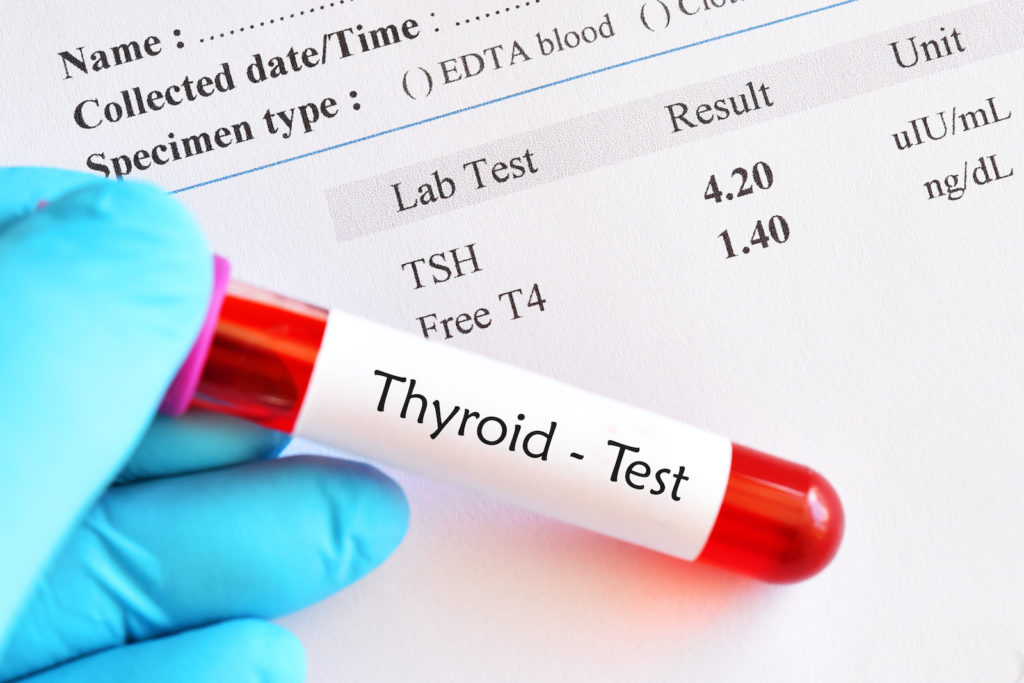
If a recent lab test has shown that you have elevated thyroid antibodies, your next question might be, “How can I bring them down to normal levels?”
When it comes to thyroid antibodies, striving for perfection may be overrated. Research shows that patients with TPO (thyroid peroxidase) levels below 500 are unlikely to become hypothyroid. [4]
If your TPO levels are higher than 500, it’s worth making an effort to bring your antibody levels down. This can be accomplished through diet and lifestyle changes, and improvements in gut health. If your antibody levels are below 500, good gut health and lifestyle improvements may reduce your antibodies further, but there’s no reason to obsess over the numbers. What’s important is feeling energetic and symptom-free.
For more information see: What Are Healthy Levels for Thyroid Antibodies?
How Long Can You Go Without Thyroid Medication?
If you take a synthetic thyroid hormone like Synthroid and accidentally skip a dose, there’s little harm. But not taking your thyroid medication for longer periods of time can lead to bigger problems and long-term risks.
Certain foods, medications, and supplements can prevent you from absorbing thyroid medication well, effectively reducing your dose. Gut infections can have the same effect.
And while it’s important to get enough thyroid hormone from your medication, overdiagnosis and over treatment of hypothyroid is very common. Some patients may be able to reduce or discontinue their thyroid hormone replacement with the right health supports.
For more information, see: How Long Can You Go Without Thyroid Medication?
What’s My Ideal Thyroid Medication?
It’s very common for thyroid patients to continue to struggle with fatigue, brain fog, weight gain, and other symptoms of hypothyroidism, despite taking a synthetic thyroid hormone like Synthroid.
A lot of patients hope that a change in thyroid medication will resolve their symptoms. But tinkering with thyroid medications when you have active gut inflammation or a gut infection is not likely to help. It’s like adding gas to your car when the battery is dead.
Poor gut health may be the real reason you struggle with so-called hypothyroid symptoms. It’s important to address your gut health first before optimizing your thyroid medication. Once gut conditions are resolved, most patients do fine with a standard T4 medication like Synthroid. Alternative thyroid medications may be a better choice for certain patients.
I use a four-step process with thyroid patients to ensure that we fully address the root causes of symptoms and personalize thyroid medication requirements.
For more information, see: Find Your Ideal Thyroid Medication in 4 Simple Steps.
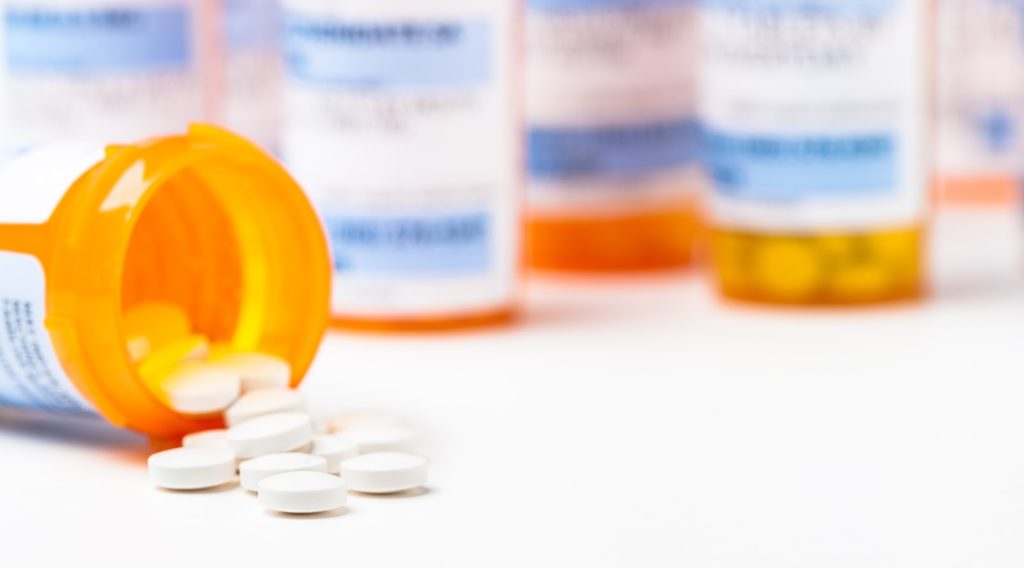
Optimizing Your Thyroid Health
Most traditional thyroid treatment involves using thyroid medication alone, but there is a lot more you can do to improve your thyroid function and even to improve your thyroid condition. Improving your gut health, select supplements, and a simple lifestyle detox can make a big difference.
The Gut-Thyroid Connection
Symptoms like fatigue, brain fog, depression, feeling cold, and anxiety aren’t unique to hypothyroidism.
A lot of so-called thyroid symptoms actually may come from an unhealthy gut.
But … once you have a thyroid diagnosis, many healthcare practitioners focus exclusively on thyroid treatments and never consider other options.
If you’re a thyroid patient, it’s important to know that:
- GI treatments can improve thyroid health, sometimes dramatically. [5, 6, 7, 8, 9, 10, 11]
- A simple protocol that combines thyroid and gut treatments is helpful for many patients with stubborn thyroid symptoms.
For more information, see: The Gut-Thyroid Connection.
Do You Need A Thyroid Detox?
Endocrine disrupting chemicals interfere with the way the body’s hormone system works and are sadly pervasive in the modern world. Your thyroid gland is certainly vulnerable to environmental pollutants and chemicals. [12]
Can you do a thyroid detox from chemicals to improve your thyroid issues? Research really doesn’t shed much light on this question. However, we can draw on what we do know for some sensible guidelines:
- We’re all exposed to environmental pollutants.
- The best approach to a thyroid detox is a simple diet and lifestyle clean up.
4 Simple Thyroid Detox Tips
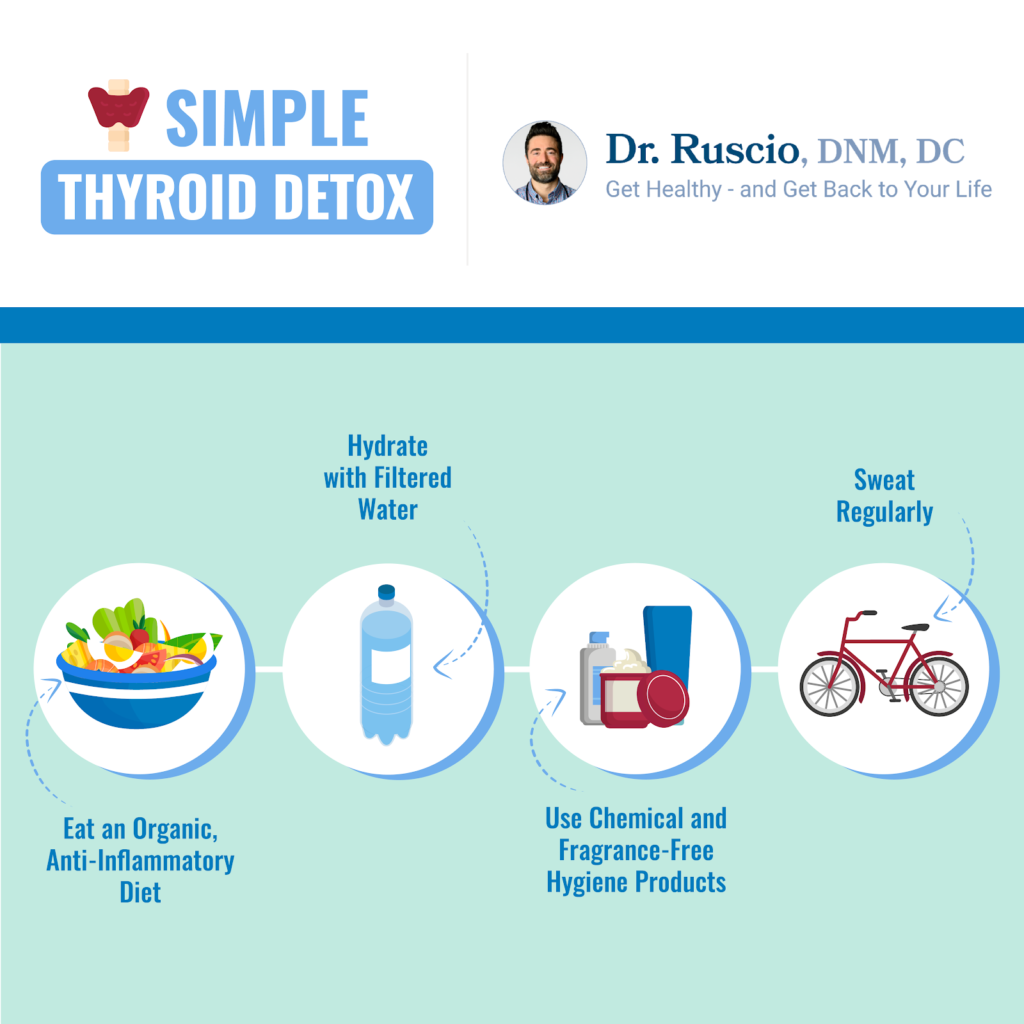
- Eat an organic, anti-inflammatory diet.
- Stay well hydrated with clean, filtered water.
- Sweat regularly with exercise or sauna.
- Using chemical- and fragrance-free hygiene products, such as soaps, lotions, shampoos, and deodorants.
For more information, see Do You Need A Thyroid Detox?
What Are the Best Supplements for Thyroid Health?
Different thyroid supplements are recommended for different types of thyroid conditions. Be sure to work with your doctor, and only include supplements that are indicated for your particular situation.
Before you reach for supplements to support your thyroid health, keep the big picture in mind: a healthy thyroid begins with a healthy gut, so make sure to include thyroid support supplements only after you’ve addressed your gut health.
Here’s an overview of thyroid supplements that may be helpful:
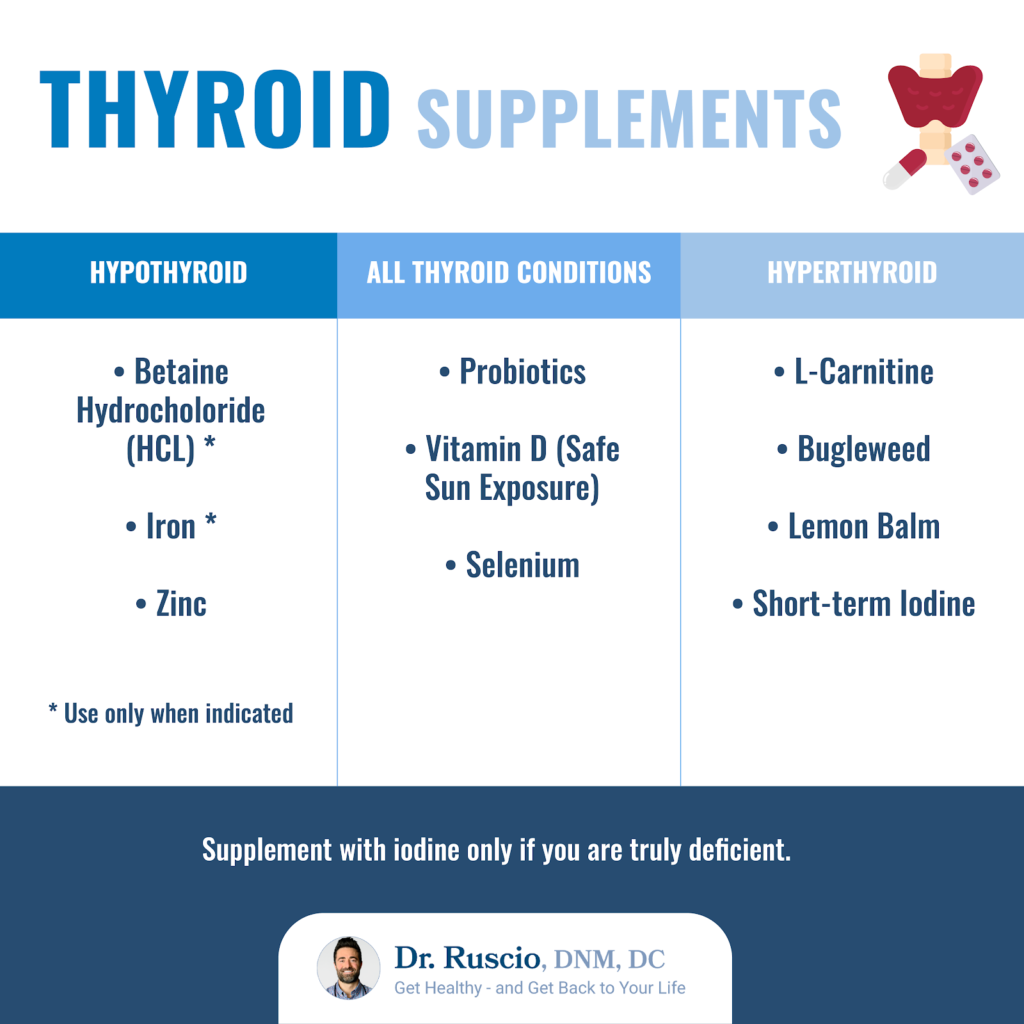
For more information on supplements for Hypothyroidism, see What are the Best Supplements for Thyroid Health?
For more information on supplements for Hyperthyroidism, see Natural Management of Graves’ Disease.
Is a Low-Iodine Diet Good for Your Thyroid?
While some practitioners recommend iodine supplementation for thyroid patients, research suggests that reducing iodine intake with a low-iodine diet may help reduce or resolve hypothyroid conditions. [13, 14, 15] Research also shows that too much iodine can increase thyroid autoimmunity. [16, 17]
Historically, iodized salt was invented to prevent iodine deficiency and widespread incidence of goiter or swollen thyroid. Clearly the role of iodine in thyroid health is important, but too much or too little iodine can both cause problems.
Contrary to popular wisdom, science shows that a low-iodine diet can be beneficial for a significant number of hypothyroid patients.
For more information, see: A Low Iodine Diet May Improve Hypothyroidism
The Bottom Line
By focusing on diet and lifestyle basics, you can optimize your thyroid health, whether you have a thyroid condition or not. Improving your gut health is especially likely to be helpful. If you need help learning what to do, be sure to explore our other thyroid articles, or get connected with a knowledgeable health coach.
Dr. Michael Ruscio is a DC, natural health provider, researcher, and clinician. He serves as an Adjunct Professor at the University of Bridgeport and has published numerous papers in scientific journals as well as the book Healthy Gut, Healthy You. He also founded the Ruscio Institute of Functional Health, where he helps patients with a wide range of GI conditions and serves as the Head of Research.
Discussion
I care about answering your questions and sharing my knowledge with you. Leave a comment or connect with me on social media asking any health question you may have and I just might incorporate it into our next listener questions podcast episode just for you!